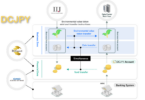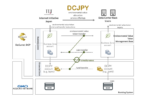A report published by the U.S. Congressional Research Service has weighed in on the potential of blockchain in the energy sector.
After reviewing the costs of energy-hungry blockchains like Bitcoin, the paper highlights multiple ways blockchain could affect the sector – with some uses more disruptive than others.
Blockchain’s potential
The more straightforward application of blockchain is in Renewable Energy Credits (RECs) trading. RECs are proof that energy was generated from renewable sources. Purchasing these credits can help businesses to meet regulations on renewable energy use. Blockchain could allow trading of RECs without the need for a centralized party to verify the transactions. This might mean a more reliable and efficient trading experience.
Examples include PowerLedger with Clearway and Singapore’s S.P. Group which have both developed blockchain REC platforms.
The ‘highly disruptive’ applications of blockchain are for unbundled and peer-to-peer energy buying and selling. For example, a customer could purchase excess energy directly from their neighbour’s solar panel without going through a traditional utility company.
Another peer-to-peer implementation involves ‘virtual power plants’ — these aggregate renewable sources, whether that’s numerous solar panel installations or wind farms. The virtual power plant acts as an intermediary between the energy producers and the wholesale electricity market. It also can help with managing peak load requirements.
These applications could result in a more efficient and transparent energy system. Consumers would have more choice over their energy suppliers, and the technology could inject greater competition into an industry which traditionally has exceptionally high barriers to entry.
The problems
Nevertheless, the report has singled out issues.
First, a more distributed energy system means that the system is harder to control and regulate. It is much easier to regulate fewer but larger providers than a vast number of distributed sources.
Second, the distributed system might result in vast quantities of data being stored on systems which are not adequately protected from cyber-attack. This could make power grids and personal data more vulnerable.
Last is the most common concern amongst would-be blockchain adopters: regulation. Jurisdiction over the sale of energy in the U.S. is a complicated affair with potential claims coming from state or federal regulators. The situation boils down to whether the sale of electricity from distributed sources is a retail transaction or a sale for resale. Typically, states regulate the former and the federal government the latter.
Indeed, the lack of independent standards is hurting the industry. A survey conducted by the Electric Power Research Institute found that 77% of respondents identify concerns that the energy industry “lacks appropriate standards.”
However, this has not put development on hold. The Institute’s survey also revealed that utilities in the U.S. are typically in the pilot or research stage while some European utilities had been using blockchain for over a year.
Indeed, there is a lot of activity in the space. Last month, Japan’s Marubeni invested in WePower. Shortly before that, Shell joined Sumitomo to invest in another blockchain energy startup LO3. The Energy Web Foundation, which launched its blockchain in June has more than a hundred big-name affiliate partners including the likes of Shell. And PowerLedger recently announced a deal with a subsidiary of Austrian utility Energie Steiermark.






